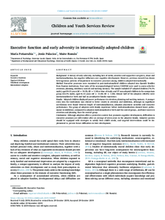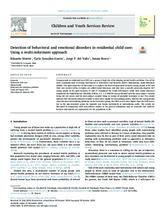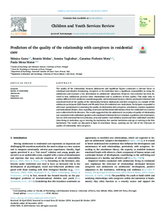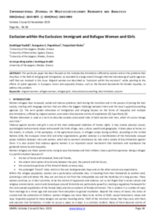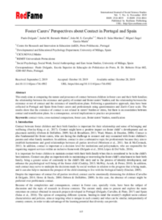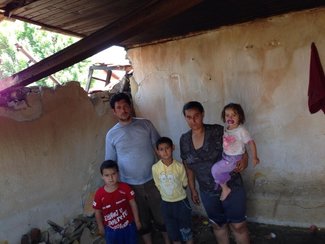

Displaying 161 - 170 of 544
According to this article from Info Migrants, the Greek Prime Minister Kyriakos Mitsotakis has announced a new scheme designed to protect unaccompanied migrant minors who have arrived in Greece.
In this study, executive functions were examined in post-institutionalized children adopted into Spanish families from Russian institutions.
This article elaborates on provisions concerning the international protection system for minor migrants. It examines entry strategies put into place by young migrants facing the Spanish migration system.
The main objective of this study is to analyze the level of agreement between young people in residential care (RC) and their care workers (who, in Spain, are called social educators, and who have a specific university degree).
This study aims to analyze different level predictors (sociodemographic and institutional history-related, emotional/relational and contextual level) of the quality of the relationship between adolescents and their caregivers, in a sample of 326 adolescent participants (228 female and 98 male) from 20 residential care institutions.
This study extends research on the effects of institutionalization—by examining the trajectories of cognitive, language and motor development of 64 Portuguese infants and toddlers across the first six months of institutionalization, while determining whether pre-institutional adversities and the stability and consistency of institutional care predict children’s development.
This chapter from the book Education in Out-of-Home Care assesses a pilot project aimed at improving the school-based learning of children in residential care in Austria, Croatia, France, Germany and Spain.
Join this webinar to walk through the PROMISE Child Participation Tool and to discuss approaches and considerations for soliciting children’s views on their Barnahus experience.
This particular paper has been focused on the multiple discriminations suffered by women and girls (including unaccompanied minor girls) and on the problems that they face in the field of refuging and immigration, as recorded to a large extent through informal interviewing of public agencies staff that are involved in this issue.
This study aims at comparing the nature and processes of contact between children in foster care and their birth families; the relationship between the existence and quality of contact and foster carers’ burden; and the relationship between the existence or not of contact and the existence of reunification plans.

